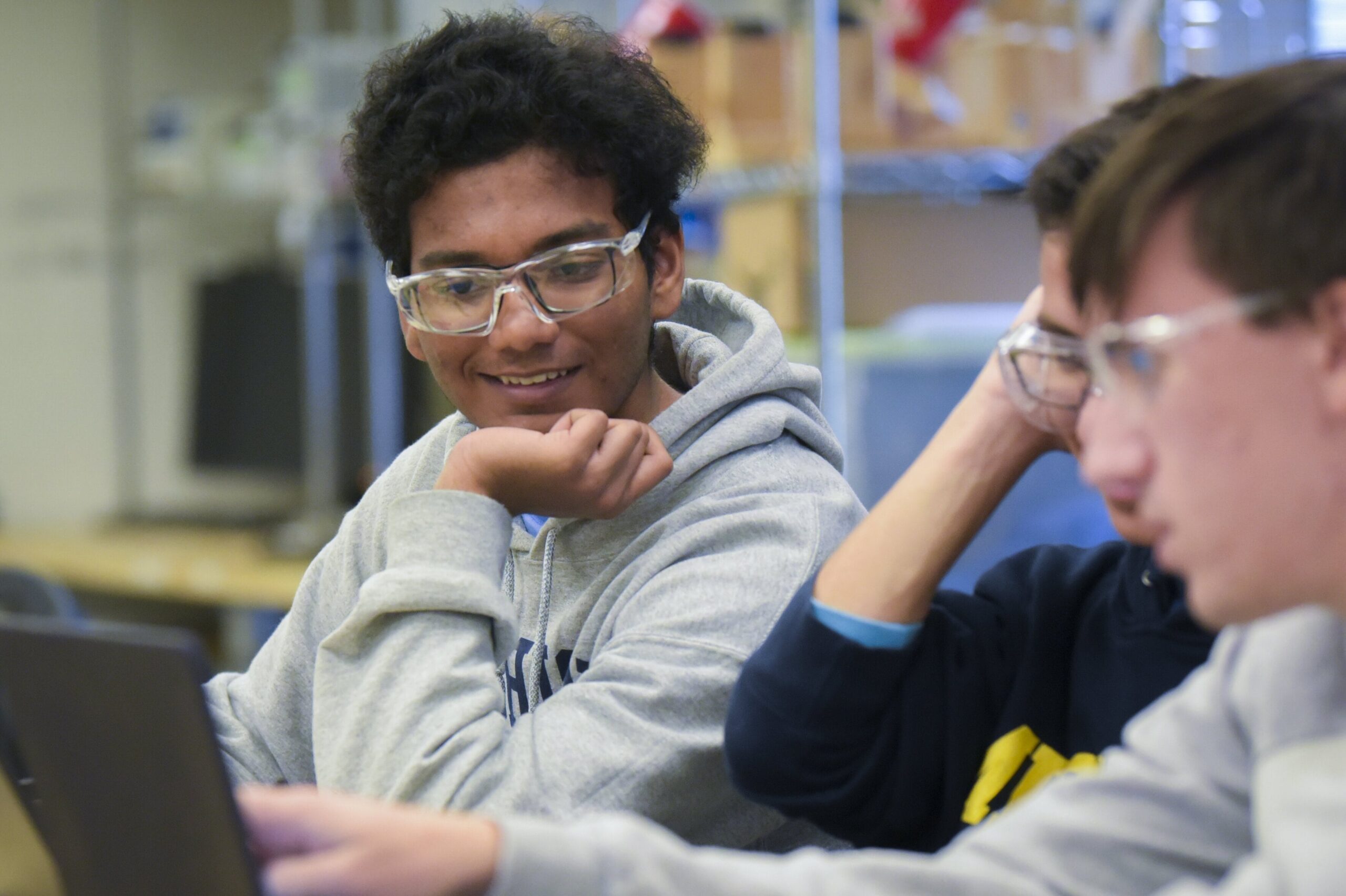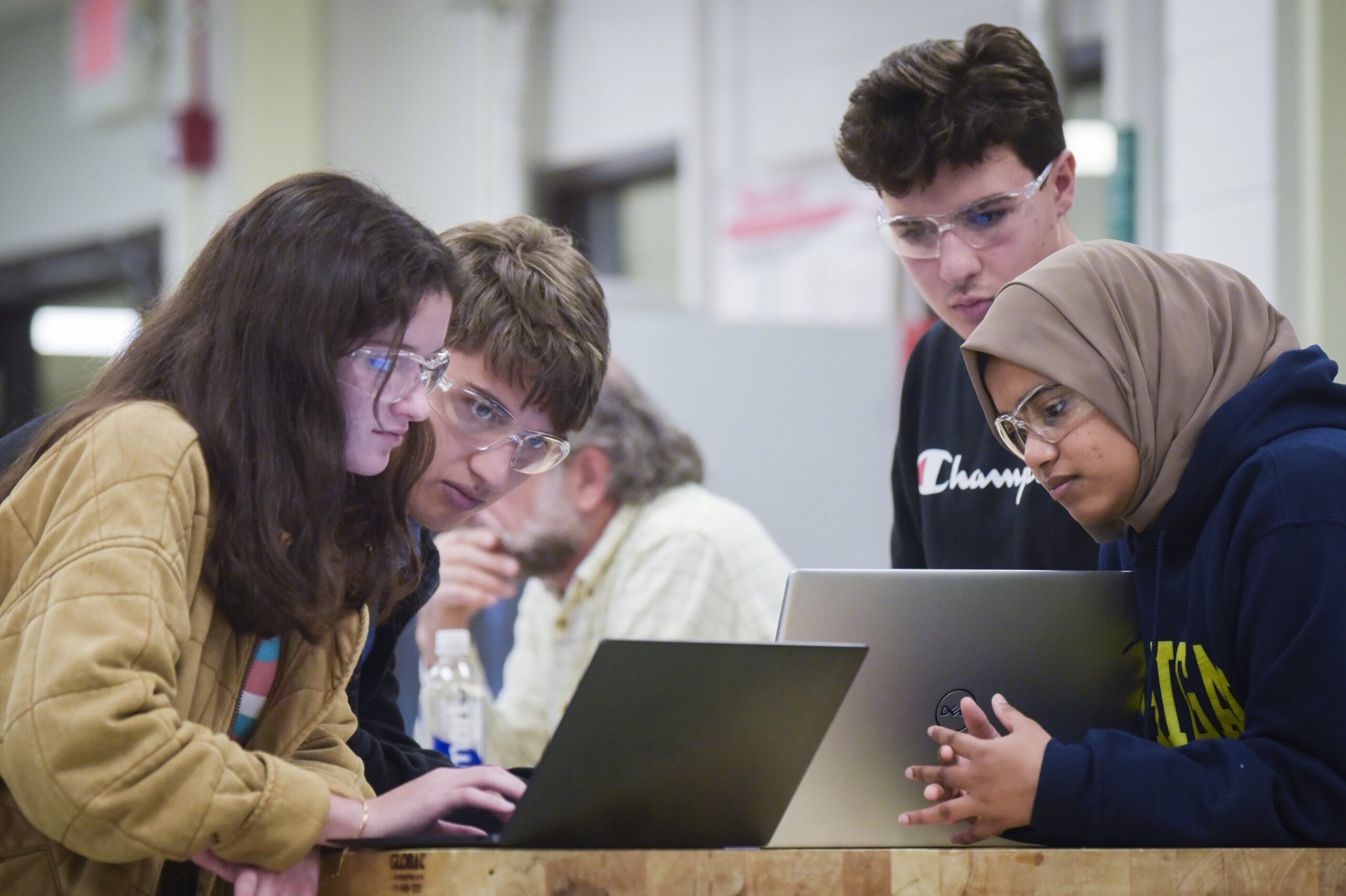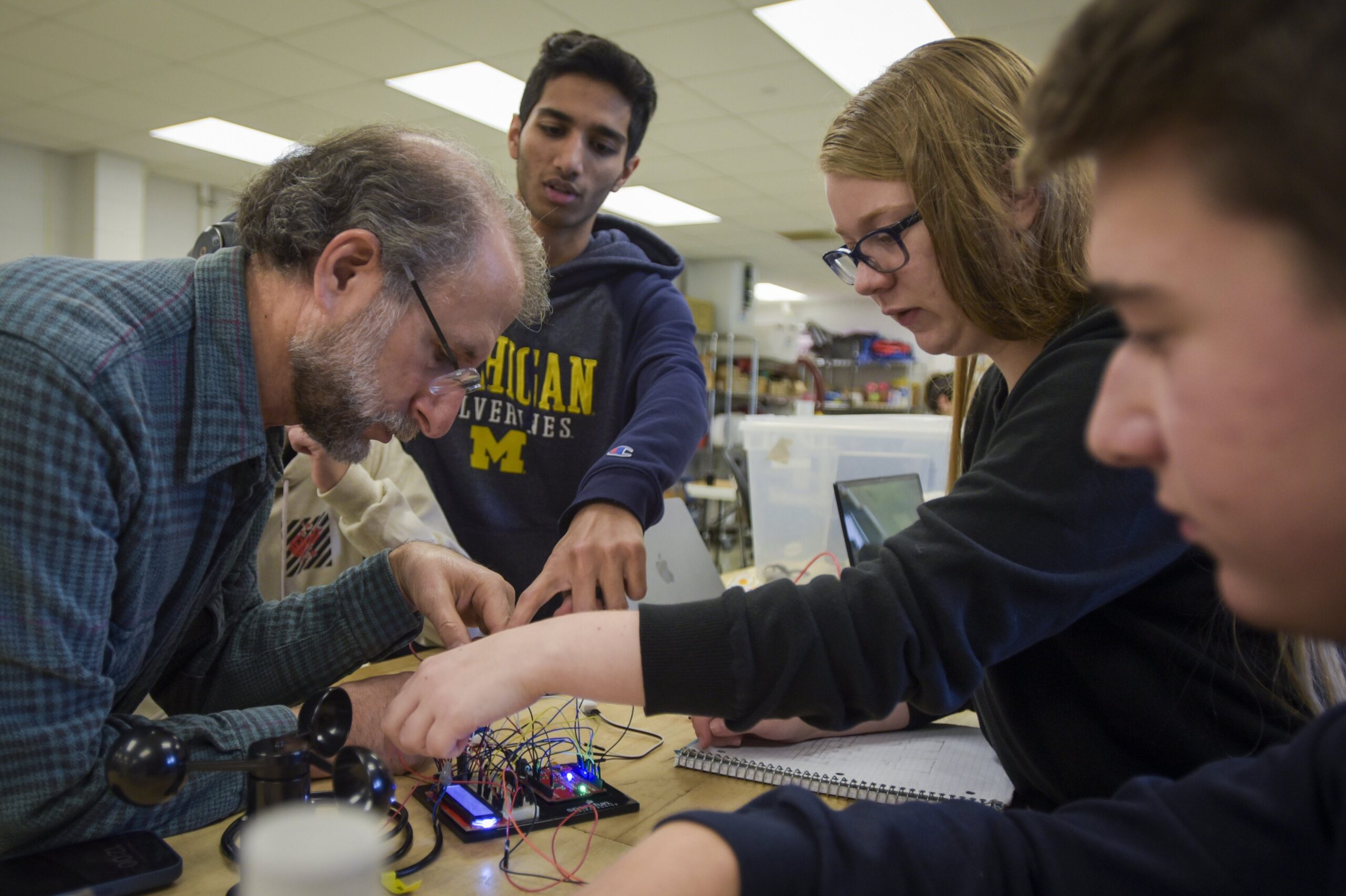ENGR 100.980: Rocket Science (CLaSP)
Faculty:
Alan Hogg (TechComm),
David Greenspan (TechComm),
Chris Ruf (CLaSP)
Fall Term
– Aaron Ridley


Rocket science, how we use rockets to move stuff around the Earth and throughout the solar system, is a confluence of several engineering fields including mechanical, aerospace, and electrical engineering as well as computer science. When a system is built, its performance is measured and compared against expectations given the design. In this section, you will learn the skills to design, build and deploy a sensor package to measure the performance of a small rocket that you will also design and build. You will learn:
-
-
Practical skills from several engineering fields including CAD and using and programming a microcontroller
-
Solving complex problems using the engineering method
-
Understanding the cycle of a project through the conception, requirements flowdown, design, build, test, deployment, analysis, documentation, and reporting processes.
-
Term Project:
Design, build, and deploy a small rocket with a sensor package in it. Measure the characteristics of the rocket’s flight and compare that against its expected performance
Labs:
Collecting data with an Arduino microcontroller and analog sensors; designing systems with CAD; soldering; building and testing a system; and validation of performance using computer models.




